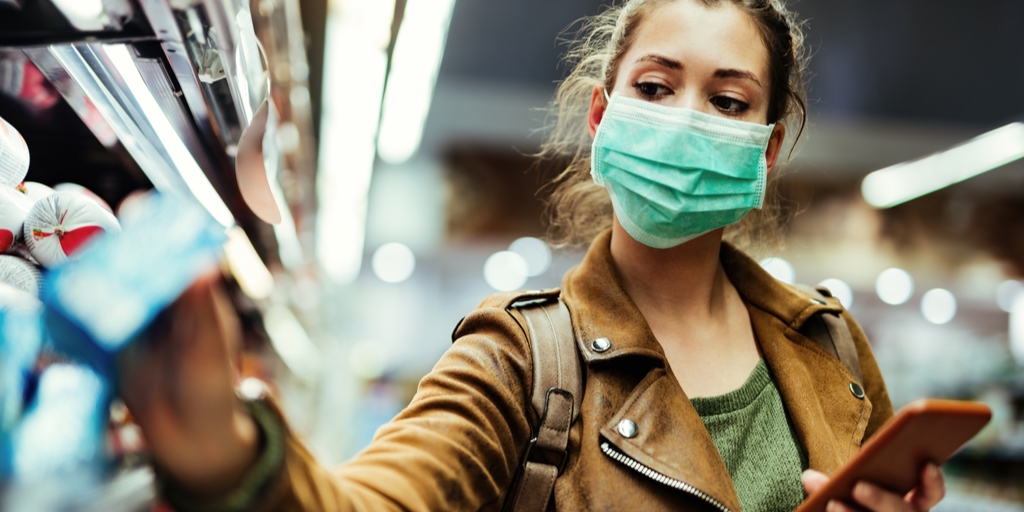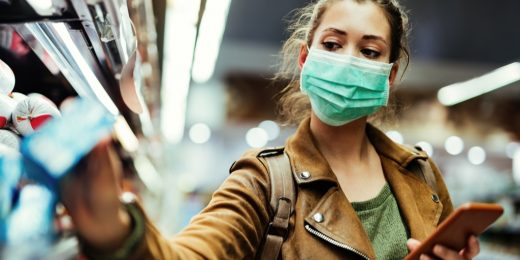Apple, Google Delivered COVID-19 Tracing Technology — Will Users Share Data?
Apple, Google Delivered COVID-19 Tracing Technology — Will Users Share Data?

It took years for brands to convince consumers to opt into apps and platforms to share their data in exchange for free stuff. Now Apple and Google — two companies that have traditionally had somewhat different views on protecting and sharing data — have collaborated on a technology to protect people. Will consumers download and use it?
About 48% of those participating in a survey by Checkmarx, a software security company, say they are either unlikely or will refuse to opt-in to COVID-19 contact-tracing apps.
The survey of U.S. consumers was commissioned in May 2020 to better understand their perceptions around their expectations of tracing apps, as well as the security of software and applications.
Google in the past few years has created a privacy portal to help users of their platforms to better understand how the company uses their data. It also helps people make choices based on their own privacy.
“I would expect Google to be pretty transparent in terms of the data they use, as opposed to what they did years ago with Google Maps,” said Matthew Mierzejewski, SVP and search capability lead at agency Merkle. “Many years ago you were opted into location tracking by default in Google Maps.”
The advertising industry overall has seen success in gaining consent for websites to use cookies.
The average user just wants the popup to go away, so they click on it make it disappear. Then there are those who use Duck Duck Go, a privacy search engine, because they just don’t want to be tracked.
“I think that percentage is under 10% of the population,” Mierzejewski said. “I have to click ‘yes’ on Apple’s terms to continuing using iOS. I’m not sure people will see the same benefits for a tracing app with cross-platform environments such as government, Apple and Google.”
One company has already exposed sensitive data, business services and outsourcing company Serco, which apologized after an internal error accidentally exposed Covid-19 coronavirus contact tracers. The report suggests a Serco employee attempted to email training details to nearly 300 people but accidentally placed their email addresses in the CC field rather than the BCC field, exposing the details to everyone contacted.
Regardless, rapid technology shifts brought on by COVID-19 have seen people increase their use of apps. When asked to name the apps they have used for the first time during the COVID-19 pandemic, 44% cited video conferencing apps such as Microsoft Teams. Some 25% cited food delivery apps like Uber Eats, and Insta Cart; 23% cited e-Commerce such as Amazon, and Target; 19% cited virtual learning apps such as Google Classroom) and 16% cited finance and banking apps such as Venmo and Zelle.
Consumers are placing the pressure on developers when it comes to preserving application security and privacy, with 49% feeling as if they are most responsible for their safety.
According to the findings, 61% of consumers are extremely, moderately, or somewhat concerned about the security of applications and software, with another 16% saying they are slightly concerned. Just 23% say they are not concerned at all.
When asked to cite their concerns, 45% want to know how the data will be stored, 29% they are not sure about granting third-party access to the apps, 28% point to general application hacking concern, 27% cite the risk of health records being exposed, and 25% cite the risk of location data being exposed.
Using web and mobile apps is not the issue.
Some 87% participating in the study use mobile and web applications more than — or at least the same amount — as before the pandemic. About 28% say they spend more than six hours per day using apps, and 56% spend at least three hours.
(12)


